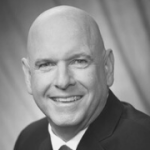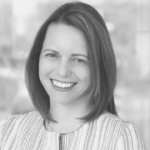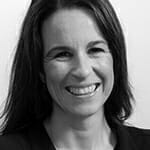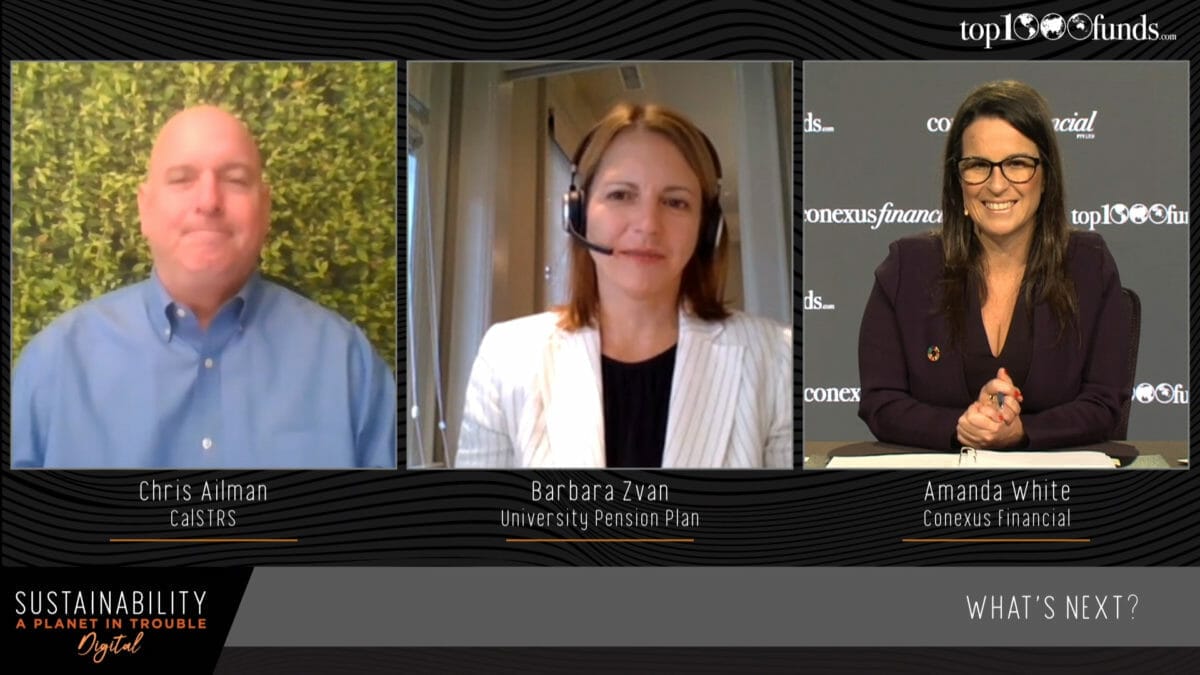What is required for all investors to use their influence to create a more sustainable economy, and to wake up to the crucial role they play in ensuring a sustainable recovery?
Christopher Ailman has been the chief investment officer of CalSTRS for over 18 years. He leads an investment staff of 170 and oversees a portfolio valued at $253.6 billion as of July 31, 2020. He has over 36 years of institutional investment experience.
He has served on several boards and advisory boards in the US and UK. He represents institutional investors on the MSCI Index Editorial Advisory Board, EDHEC Risk Institute, PRI Asset Owners Advisory Committee, and the Toigo Foundation. He is the co-chair of the North American 300 Club and the Milken Global Capital Markets Committee. In 2016, he was part of the first cohort to achieve a Fundamentals of Sustainable Accounting (FSA) credential.
Each year, he is recognised as one of the top CIOs both in the US and globally. He has received numerous awards and recognitions: CIO of the Year in 2000, recipient of the 2003 Richard Stoddard Award for service in the investment of pubic pensions, 2006 he received the Distinguished Service Award for Advancement of Latinos in Business from the New American Alliance, 2011 he received the Institutional Investor’s Large Public Fund Manager of the Year Award and in 2013 he was named the number three CIO in the world and Investment Innovator of the Year. In November 2017, Ailman received Institutional Investor magazine’s first Lifetime Achievement Award. He is a regular guest on the TV and radio and is frequently quoted in in major financial publications.
Ailman has a Bachelor of Arts in business economics from the University of California, Santa Barbara. He received his certified financial planner designation from the University of Southern California. He is married with three daughters and is a committed Promise Keeper.
Barbara Zvan is a seasoned senior executive and visionary in the pension field. As a trained actuary and 25-year industry veteran, she brings expertise in pension administration and member services, pension design, enterprise strategy and risk management, long-term responsible investing, and leading high-performing teams.
After starting out as an assistant portfolio manager at the Ontario Teachers’ Pension Plan, she took on increasing responsibilities rose to become its chief risk and strategy officer (CRSO) and leader of the strategy and risk team. As CRSO, Zvan supported the plan sponsors in determining plan design and the board in establishing a robust enterprise risk management framework anchored by a transparent risk appetite. She helped design a total fund investment strategy that delivered both leading returns and a stable, secure pension promise to members. She crafted the fund’s responsible investing and climate change strategy, leading Ontario Teachers’ to be named one of the world’s top responsible asset allocators by Bretton Woods II.
Recognized as a leading voice on sustainable investing and an ambassador for defined benefit pensions, Zvan is known for her efforts to bring institutional strength to complex challenges and forge new collaborative pathways for innovation and growth.
Zvan was appointed to the Government of Canada’s Expert Panel on Sustainable Finance, is a member of the Advisory Committee for the new ‘Investing to Address Climate Change’ Charter and played a significant role in creating the G7 Investor Leadership Network.
She serves on the boards of the Global Risk Institute and the Responsible Investment Association and the advisory board of the Institute of Sustainable Finance at the Smith School of Business. She was chair of the International Centre of Pension Management and the Sustainability Accounting Standards Board’s Investor Advisory Group, and served of the boards of the Canadian Coalition for Good Governance, Cadillac Fairview and the Chilean water utilities Esval (Essbio) S.A.
Zvan is a Fellow of the Society of Actuaries and the Canadian Institute of Actuaries, a holder of the Institute of Corporate Directors designation (ICD.D) and has a Master of Mathematics degree from the University of Waterloo. She is an honouree of Canada's 2020 Clean50 and Canada's 2008 Top 40 Under 40.
White is responsible for the content across all Conexus Financial’s institutional media and events. She is responsible for directing the bi-annual Fiduciary Investors Symposium which challenges global investors on investment best practice and aims to place the responsibilities of investors in wider societal, and political contexts, as well as promote the long-term stability of markets and sustainable retirement incomes. She is the editor of conexust1f.flywheelstaging.com, the online news and analysis site for the world’s largest institutional investors. White has been an investment journalist for more than 20 years and has edited industry journals including Investment & Technology, Investor Weekly and MasterFunds Quarterly. She was previously editorial director of InvestorInfo and has worked as a freelance journalist for the Australian Financial Review, CFO, Asset and Asia Asset Management. She has a Bachelor of Economics from Sydney University and a Master of Arts in Journalism from the University of Technology, Sydney. She was previously a columnist for the Canadian publication, Corporate Knights, which is distributed by the Globe and Mail and The Washington Post. White is currently a fellow in the Finance Leaders Fellowship at the Aspen Institute. The two-year program consists of 22 fellows and seeks to develop the next generation of responsible, community-spirited leaders in the global finance industry.
Key takeaways
Chris
- Screening China from an environmental and human capital standpoint will be critical in 2021.
- Investment teams of the future will be younger, more open-minded and highly adaptable. People are a huge asset. How people are managed impacts company value greatly.
- The future may well involve closer collaboration between asset owners and asset managers. Wall Street is far too expensive.
- It is hard to be adaptable when reality hits you in the face.
- The future will be much more challenging than the past.
- Throughout history massive shocks have forced changes in human behaviour.
- Sustainability can become part of the mainstream lexicon in the USA if we are not unnecessarily distracted by politics. We need to take the conversation away from politics and focus on risk.
- We have entire parts of the world that are not fully committed to sustainability, so it is hard to be proud.
- We need all the world’s bright minds to think ahead.
- ‘Constant education is key to a better world and a better future.’
Barbara
- We should consider what our individual organisation can do and what our organisation can do in partnership with others.





